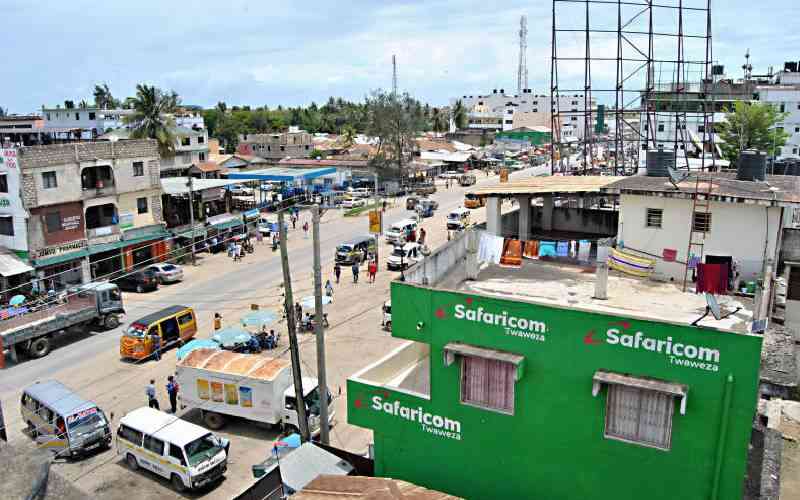×
The Standard e-Paper
Fearless, Trusted News

Mtwapa town in Kilifi County is emerging as an industrial hub at the Coast. The once-predominant, earsplitting music blasting from nightclubs that dotted the tourist town, nested 17 kilometres northeast of the coastal city of Mombasa, has faded.
In its place are deafening thuds of earth movers tearing down old buildings or levelling sites for factories, warehouses, modern shopping malls, or residential flats.